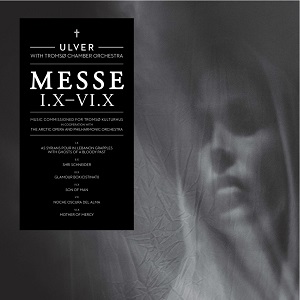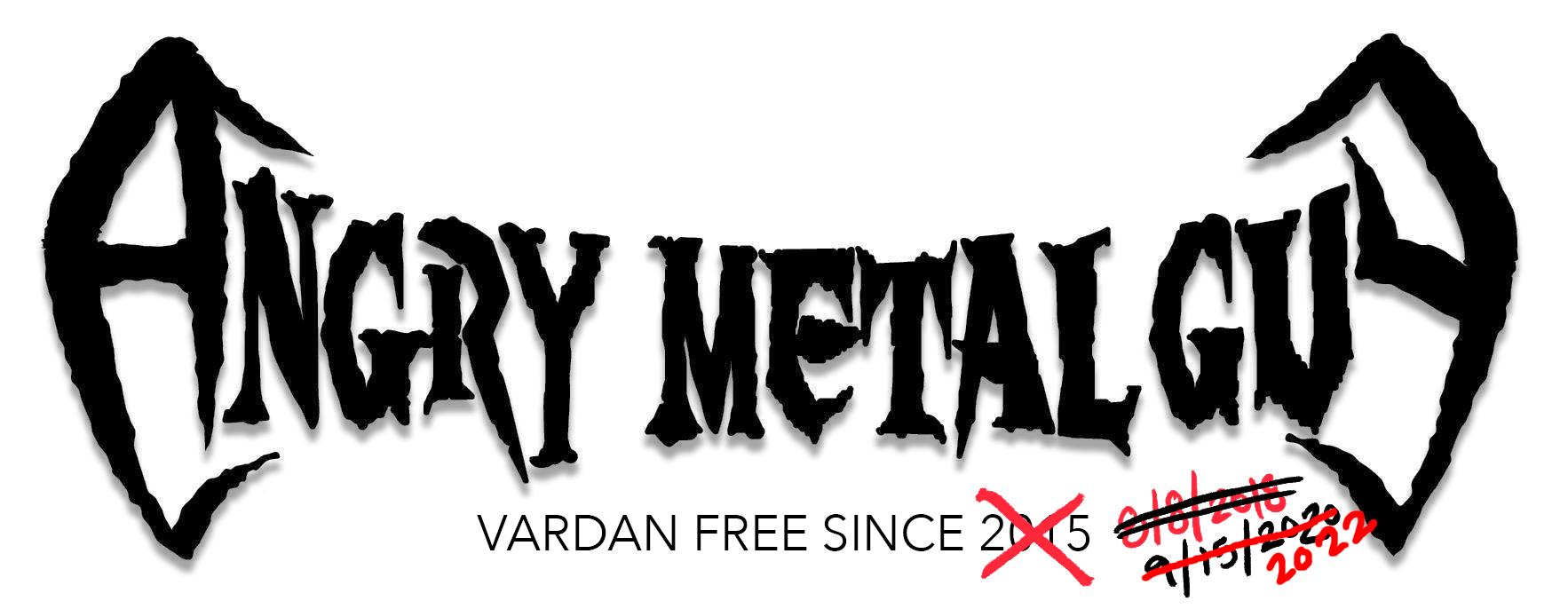 The good people reading this blog will certainly not be offended if I start this review with a personal note. The problem is that, sometimes, I feel that in order to be able to express an individual judgement on an album, you have to try and see things from a different perspective. The world is full of people in bad faith and scribes with no taste in music, but problems arise when the two categories merge and ignorant self-assuredness is given a blank page and a word processor. With this in mind, the point of view on the opposite side of the spectrum is undoubtedly the most interesting and challenging one, so for this reason, and for this reason only, Messe I.X–VI.X is an incredibly arrogant and presumptuously conceited piece of contemporary music.
The good people reading this blog will certainly not be offended if I start this review with a personal note. The problem is that, sometimes, I feel that in order to be able to express an individual judgement on an album, you have to try and see things from a different perspective. The world is full of people in bad faith and scribes with no taste in music, but problems arise when the two categories merge and ignorant self-assuredness is given a blank page and a word processor. With this in mind, the point of view on the opposite side of the spectrum is undoubtedly the most interesting and challenging one, so for this reason, and for this reason only, Messe I.X–VI.X is an incredibly arrogant and presumptuously conceited piece of contemporary music.
It is decadent, and decadence is, by definition, unavoidable and imperceptible by those living in it, because the mere realisation of its occurrence would almost immediately determine its fulfilment. Therefore Ulver seem to be completely unaware of the fact that their music is a fiery testimony of a luxuriously self-indulgent artistic attitude. I mean, contemporary classical music? Electronics? And what about this continuous changing and switching genres and styles on each and every album: what’s the purpose? Why? But even a person full of prejudices like my own temporary, idiotic alter ego has to admit that their state of continuous dissatisfaction is not only a tad suspicious but also, well, ‘interesting’. I give you that.
Ulver is haunted by the likes of Górecki, Mahler and Holst, true, but the subtle distinctness between the Norwegians and the contemporary purveyors of meta-music or tunes for commercials (Yiruma, LudovicoEinaudi, Michael Rosenzweig, to name but a few) lies in the different degrees of adaptability, which one can easily (and, ultimately, subjectively) assign to each and every composer. In other words: if Giovanni Allevi’s Evolution (surely, a title that is a clever act of Italian humour at its best) is destined to remain modern, alas, for the next 20 years, Messe I.X–VI.X is so contemporary and compelling, that its newness is indissolubly connected to the present. Blame the band’s peculiar background, or their being new (although not entirely) to the language spoken on the album, or even the fact that they managed to capture a glimpse of their artistic restlessness – of their electronic soul – with a classical lens. But this album is so present-day that we will forget about it tomorrow. In the same fashion as nobody I know ever mentions the likes of Erik Satie or Camille Saint-Saëns at the cocktail parties my, less fortunate, real self never manages to attend.
The work in question saw the light when Ulver was commissioned new music by Norway’s Tromsø Kulturhus in participation with the Arctic Opera and Philharmonic Orchestra. Composer Martin Romberg assisted the band and, voila, the two musical entities performed the pieces in September 2012, although the final result is the consequence of many a tampering and alteration consequently carried out by Ulver themselves. Therefore not a live album in the literal sense, Messe I.X–VI.X posed a challenge to the band (Kristoffer Rygg, Ole Aleksander Halstensgård, Jørn H. Sværen and Tore Ylwizaker), which had to, once again, challenge its canon and come up with something that was good enough for a 21-piece orchestra. Did it work? I wish I could say ‘no’. Because unfortunately it does.

The dialectical interaction between the band and the ensemble is so tight that it becomes almost indiscernible. Take “Glamour Box (Ostinai),” for instance, where the poor old listener finds himself or herself in the middle of a musical kerfuffle without even realising it. The progression is so natural that even I have to concede that, well, it works. Shadows of the Sun — an album I can’t help but secretly like — can be heard here and there, but just assign a spatial coordinate to Pärt, Lasse Thoresen, Pierre Boulez and Ligeti, and Messe I.X–VI.X will be ideally found right in the only location equidistant from them all.
Ulver’s current stance on morality and spirituality is rather ambiguous, almost cerebral, if not subliminal. Thus, the band’s music is, on this album, rather enigmatic and opaque, and the lyrics (which are only present on two tracks) seem to confirm this impression. Gone are the good old days when a Norwegian band was an all too predictable artistic entity. Satanism, anti-Semitism, nationalism, neo-luddism, teenage angst, and plain racism: where have they gone? Who’ll tickle our senses and voice the most unmentionable feelings society imposes us to repel? Not Ulver, I’m afraid. In fact, Rygg even seems to even apologise on “Son of Man:” “Oh Father, Heavenly Father, forgive me / for I have sinned, against Your word / in sadness and joy / in rainbow light / and the dark woods.”
It is such a simple and material prayer that one could almost touch it. And that is rather disappointing, because I was supposed to tell you how snobby and pompous these guys are. No more William Blake and convolution? Devil of a man that is that Garm! Lo and behold, once these words are sang, it is already too late: the laical ceremony reaches its climax and the final, terrestrial communion is reaffirmed by a group of old Italian women filling the air with their pleads to the Holy Virgin. The circle closes, the decadence can rise.
Please note that neither the word ‘black’, nor the word ‘metal’ has been used in the making of this review on Ulver. Therefore it is possible: it is definitely possible.

















